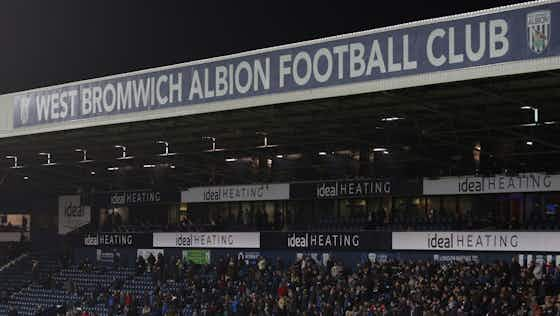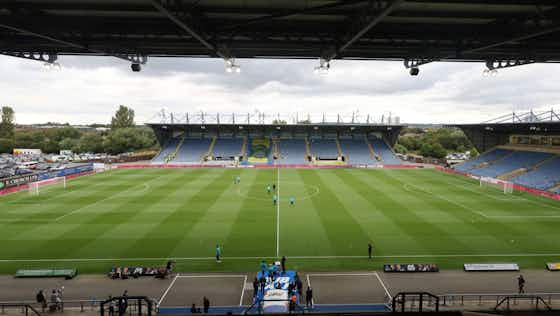Football League World
·05 de agosto de 2025
The 10 most hated EFL Championship stadiums named and ranked by AI

In partnership with
Yahoo sportsFootball League World
·05 de agosto de 2025

FLW lists the 10 most hated EFL Championship stadiums, in the opinion of AI.
As the 2025-26 Championship season rolls around, supporters from all different football clubs will travel up and down the country visiting football stadiums to watch their respective teams.
Dedicated fan bases will rack up the miles as they pin their hopes on their club having a successful second-tier season.
However, fans from previous experiences will favour some stadiums over others, with some grounds’ facilities not helping add to the matchday feel.
With this in mind, FLW asked AI to list and rank the top 10 most hated Championship stadiums from across the 24 teams.

First up at number 10 is the Riverside Stadium, which has hosted home games for Middlesbrough since 1995.
Set on the banks of the Tees, AI describes the stadium as a clean and modern ground, but cites it’s half-empty capacity as a reason for this ranking.
Its location away from the city centre combined with the sheer scale of the stands means the atmosphere can be flat, with the ground lacking some soul.

Next is The Den, the home of Millwall.
As an intimidating ground, AI believes the Den is hated for its hostile, rather than electric atmosphere.
Adding in the surrounding area and stark design of the ground, it’s always a fixture opposition fans don’t fancy the prospect of going to, with the Lions usually providing a tough and physical test in East London.

In at number eight is West Brom, who host their games at The Hawthorns in the Black Country.
Well-known as the highest ground above sea level, AI is rather complimentary about the 26,850-capacity stadium, highlighting its ability to offer good views as well as possessing quality infrastructure.
But it alludes to the fact it rarely makes headlines either, believing it lacks identity. It says that the experience can feel somewhat flat, which shouldn’t be associated with a club of Albion’s stature and pedigree.

In at number seven is QPR’s Loftus Road, located in West London and has a capacity of 18,439.
Loftus Road is one of the most compact stadiums in English football, but AI believes that is a hinderance to both home and travelling supporters.
It lists that the seats are cramped, views can be obstructed, and facilities are dated.
For taller fans, legroom is minimal, and the concourses struggle to handle matchday crowds, while there is limited parking outside of the stadium, which can be a hassle for fans to contend with before the action gets underway.

Ewood Park is up next, the home of Blackburn Rovers, which has seen many highs and low points during its history.
AI believes that the once-famous stadium has lost its shine from the heydays of Premier League glory.
Its location on the edge of town, combined with tired facilities and a dwindling atmosphere, means the experience often feels flat. In the present day, there isn’t the energy that was once felt all those years ago.

Moving back to the Midlands, and we find Stoke City’s Bet365 Stadium, which once hosted regular Premier League football before the Potters’ relegation from the top-flight back in 2018.
Stoke’s ground is another stadium that travelling supporters in particular don’t pencil in on their calendars as a must-visit, with the stadium renowned for how cold it can get throughout the 90 minutes.
Ai isn’t a fan of its open corners that can let in the wind, and the ground lacks the intimacy or intimidation factor found at other clubs in the division.

The King Power Stadium makes it on to the list, with Leicester City returning to the Championship following their relegation from the Premier League in the 2024-25 season.
Similarly to the Riverside Stadium, AI praises Leicester for having a clean and modern stadium, but the character and atmosphere lets it down.
For a club of such vast Premier League experience, it fails to generate an electric atmosphere the majority of the time, with that matching with the disappointment felt by supporters at how the club has declined over the last few years.

Heading into the top three, we find Coventry City’s CBS Arena, which has witnessed the Sky Blues go on the rise in the second-tier.
The West Midlands outfit have come narrowly close to making a return to the top-flight, losing the play-off final in 2023-24 under Mark Robins, while they suffered late heartbreak in the 2024-25 semi-final at Sunderland, with Frank Lampard at the helm.
While Coventry are on an upwards trajectory as a club, AI isn’t a great supporter of their home.
It details that the stadium feels more like a multi-use facility than a traditional football ground, with its out-of-town retail park setting, mixed with fluctuating atmosphere, leads to the overall experience feeling detached.

In second spot is Hillsborough, the historic home of Sheffield Wednesday, but the stadium isn’t in good shape heading into the 2025-26 season.
The Owls have been forced to close the 9,255-capacity North Stand after Sheffield City Council issued a Prohibition Notice following a meeting with the local Safety Advisory Group.
Meanwhile, AI is offering little sympathy over their situation, also citing that Hillsborough is showing its age.
Ai has particularly focused on the away end, which is exposed and often bitterly cold, while it offers poor views and cramped conditions, leading to the experience as a fan feeling dated.

AI has ranked the Kassam Stadium as the most hated stadium in the EFL Championship, which hosts Oxford United matches.
After gaining promotion to the second-tier during the 2023-24 campaign, Gary Rowett took over duties from Des Buckingham and kept the U’s in the Championship, with the club now hoping they can establish themselves and push away from relegation danger.
With just three sides, AI says it offers an open and unfinished feel, while it struggles to deliver the kind of atmosphere fans should get at this level of football.






























































